Dear Reader,
I once heard the “Producer” described as someone who is “good at everything, but not excellent at anything.” I think that’s ungenerous, though it hits close to the mark that the producer is the silent glue that holds the whole project (from pre to pro to post to distribution) together. I have also heard the “Producer” described as the most creative role on set, but the one that doesn’t get any credit for that creativity.
This job is vital to the production of entertainment (the hint is in the name), but very few people have a clear idea of what this job actually is. The fault for that lies in “Producer” being a catch-all term for a variety of jobs. High level, producers manage the administrative, financial, and logistical side of movie and TV making, from idea to festivals and distribution.
All pictures from this newsletter are “behind the scenes” from the feature film I helped produce three months ago, in February, in Big Bear. “Out of the Woods,” starring Frances Fisher and Bruce Davison, is written and directed by Sal Bardo and produced by Charthouse Films.
Different Producer Titles:
(*Special thanks to Raindance for a general outline of these titles. I have borrowed and added to their descriptions. I recommend their article “What Does A Movie Producer Do: Roles & Responsibilities Simplified” for more information. For a thorough breakdown of the responsibilities of a producer, I recommend “Producer to Producer” by Maureen A. Ryan.)
1. Executive Producer (EP)- Handles the financial end of the budget. Sometimes an EP credit means this person was responsible for a significant portion of the project’s financing, without managing the budget. Essentially, an investor who believes in a project and wants to see it made. Other times, an EP credit means they were involved in managing the finances of the project and supervising the production to make certain it is completed on schedule.
2. Producer- Handles production logistics over the whole process. Often, the producer is the first one with their hands on the material. They are the ones to obtain financing, reach out to a director, book locations, obtain permits, and hire crew. They work with the director to cast talent and negotiate contracts with agents. They manage deadlines, the budget, and coordinate everything. I heard one producer describe her job as making a protective bubble around her creatives so that they don’t have to worry about all the logistical details, so they can do what they do best: be creative.
3. Co-Producer- These do not typically go on set and are not involved with physical production, but rather help other producers with coordinating and high-level tasks. Co-producers sometimes procure additional financing.
4. Line Producer- Manages the budget and time schedule, ensures the project proceeds according to plan, and provides solutions when a pivot is required. They help create and coordinate schedules and all physical aspects of production.
5. Creative Producer- Assists the director in creating the project’s overall artistic vision, and supports that through the course of the project.
6. Associate Producer- Works with the producer to manage logistics in a variety of ways, such as location scouting, coordinating, and working with the scripts.
7. Field Producer- Handles all tasks not on studio lots or a sound stage.
8. Impact Producer- Handles the distribution channels, marketing, media coverage, and grows audience interaction.
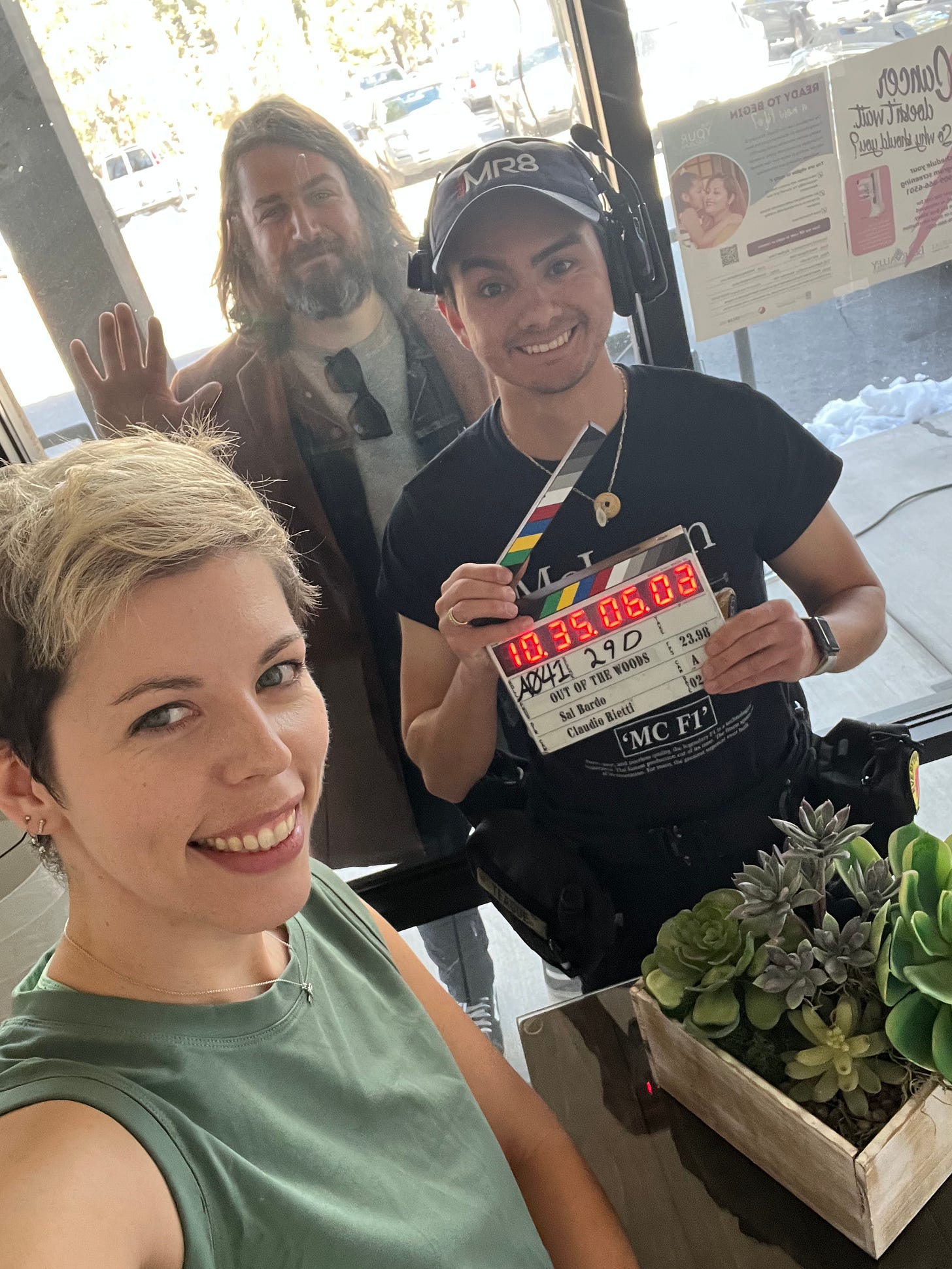
By necessity, producers must be good at working with people, persuasive, insightful, detail-oriented, financially savvy, well-connected, with an eye for talent, and driven. They hold the purse strings, and everybody wants more money, so they often have to be the bad guy. “No, there is no more money for that.” “No, you have no more time on this location.” “No, we cannot afford that aerial shot.” “No, we cannot meet that day rate, get you that extra assistant, or sushi for lunch.” Producers have to be the walls of the sandbox in which creatives play. Yet producers put those boundaries in SO THAT creatives come out on the other side with a finished project. All projects face compromises, and producers have that thousand-foot view: “Yes, we have to make a compromise here so that we come out the other end with a finished project.”
The new TV Show on Apple, “The Studio,” does a beautiful job of depicting this dichotomy that many producers exist in: they believe in the art form. Their deepest desire is to empower the artist to create. But they are also managing an infantry of other real-world issues: the limits of time, money, public opinion, studio politics, human error, the restrictions of nature, and unexpected circumstances… like snow.
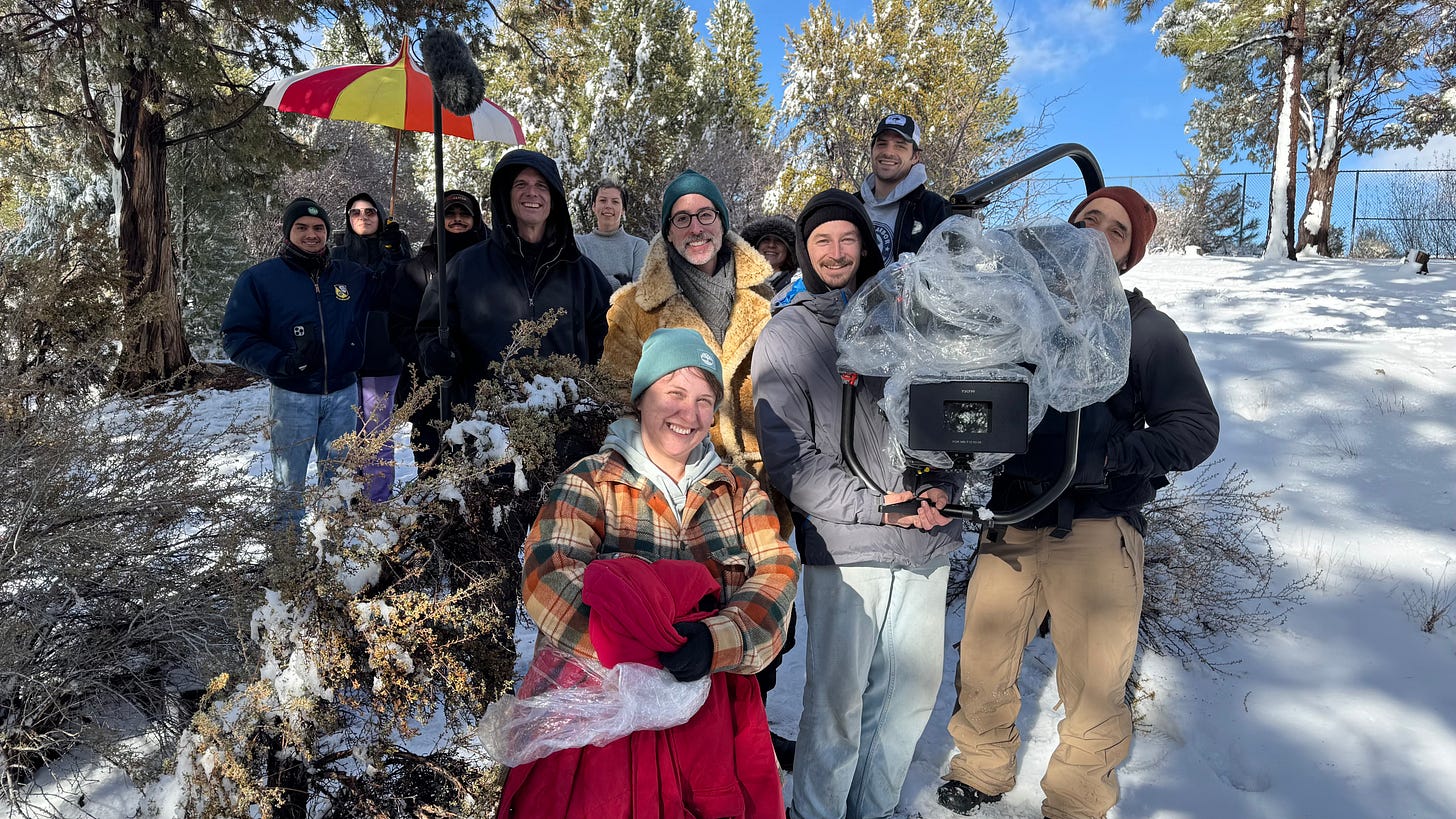
There are most certainly producers whose one goal is to use creatives to make money and obtain power. It’s real. The sharks are out there. There are far too many stories of atrocious producers in Hollywood for us to remain ignorant of that. Of course, an industry that generates so much fame, wealth, and power will attract the greedy and the power hungry, those who have no qualms about abusing and using creatives.

However, I have been deeply blessed to encounter many producers out here, in my short time living and working in the industry, who are humble, and whose heart and desire is to tell good stories, make excellent work, empower and collaborate with creatives in a sustainable model that leads to longevity in business, a legacy of powerful work, and long-term life-giving relationships. This is a creative pool we’re all swimming in, and if you foul the waters, abusing others to get ahead, not only do you wreck it for everyone, but word gets around. People talk. In the long term, one’s reputation and relational capital, I argue, are far more valuable in this industry than any money you bring to the table.
The Producers Guild of America is the union that sets the standards for producers. They arbitrate disputes, provide a network for producers, administer the P.G.A. mark, and many other things besides. The p.g.a mark in the credits signifies which producers were boots-on-the-ground involved in the making of the project. It takes quite a bit of work to receive the p.g.a. mark, requiring documentation and validation from crew department heads that this producer showed up and did the work. At the same time, an absence of this mark does not necessarily mean they didn’t do the work, particularly on an indie project.
Acting as a producer on set for a feature was a completely different ride for me. I produced most of my short films myself, so I was ready to coordinate locations, analyze schedules, and communicate with the crew. Yet on this project, I gained a whole new tool for the tool belt: permit applications. I now understand, on a personal level, the value of writing stories for locations that you already have access to. There’s a reason big-scale projects have traveled overseas: reducing the many fees and red tape to cut through.
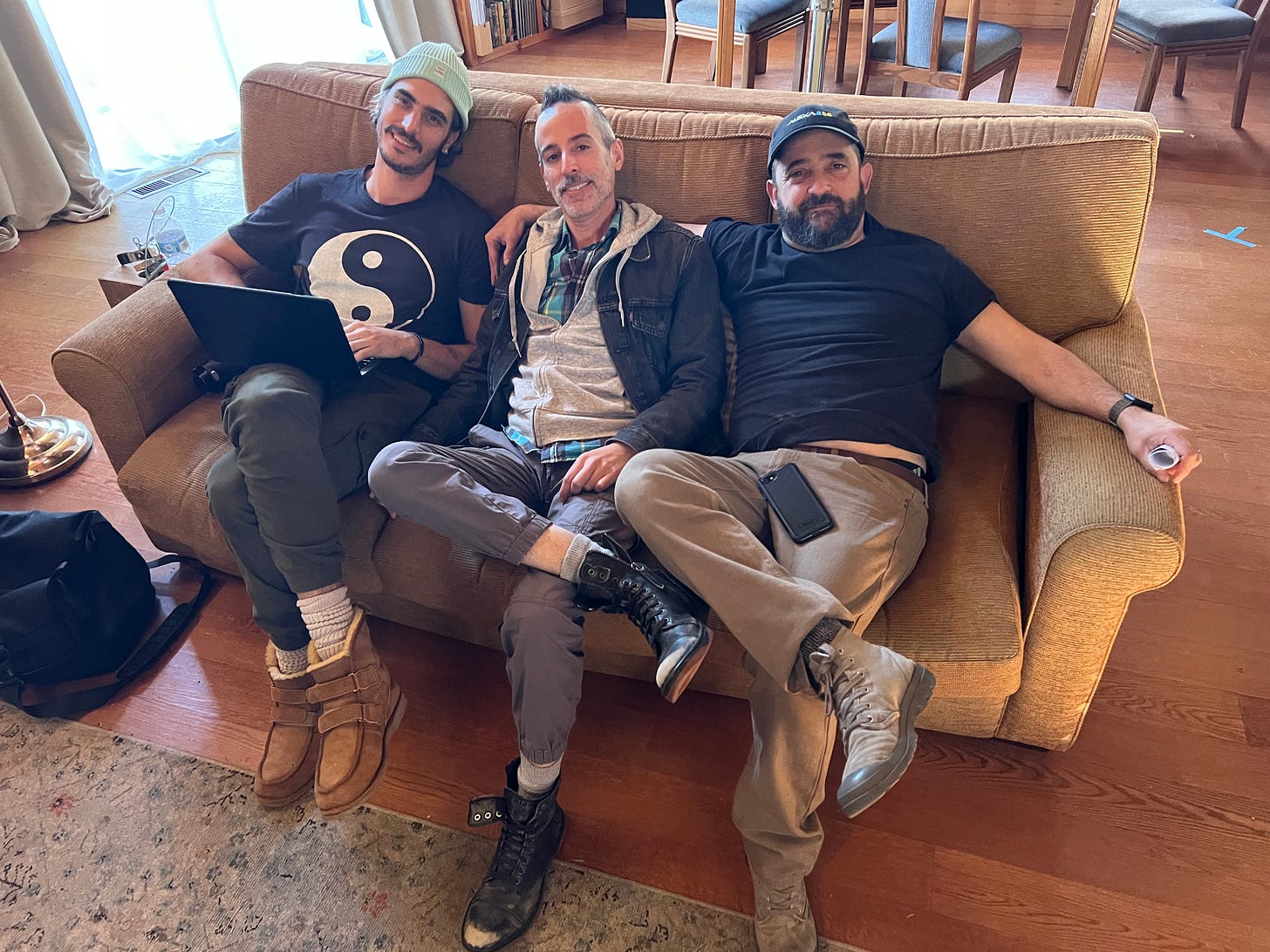
While producers are needed on set to answer questions, ensure things are moving smoothly, and coordinate solutions to problems that arise, they are not immediately involved in creating the cinematic shots. Instead, they are planning for the next day, coordinating with location reps, solving housing issues, finalizing contracts with actor agents, and watching the budget like a hawk. They must maintain a bird’s eye view of production to anticipate problems brewing on the horizon, checking in with crew morale, and occasionally talking people off the ledge. Producers are not always present on set, as they may be handling payroll or solving major problems.
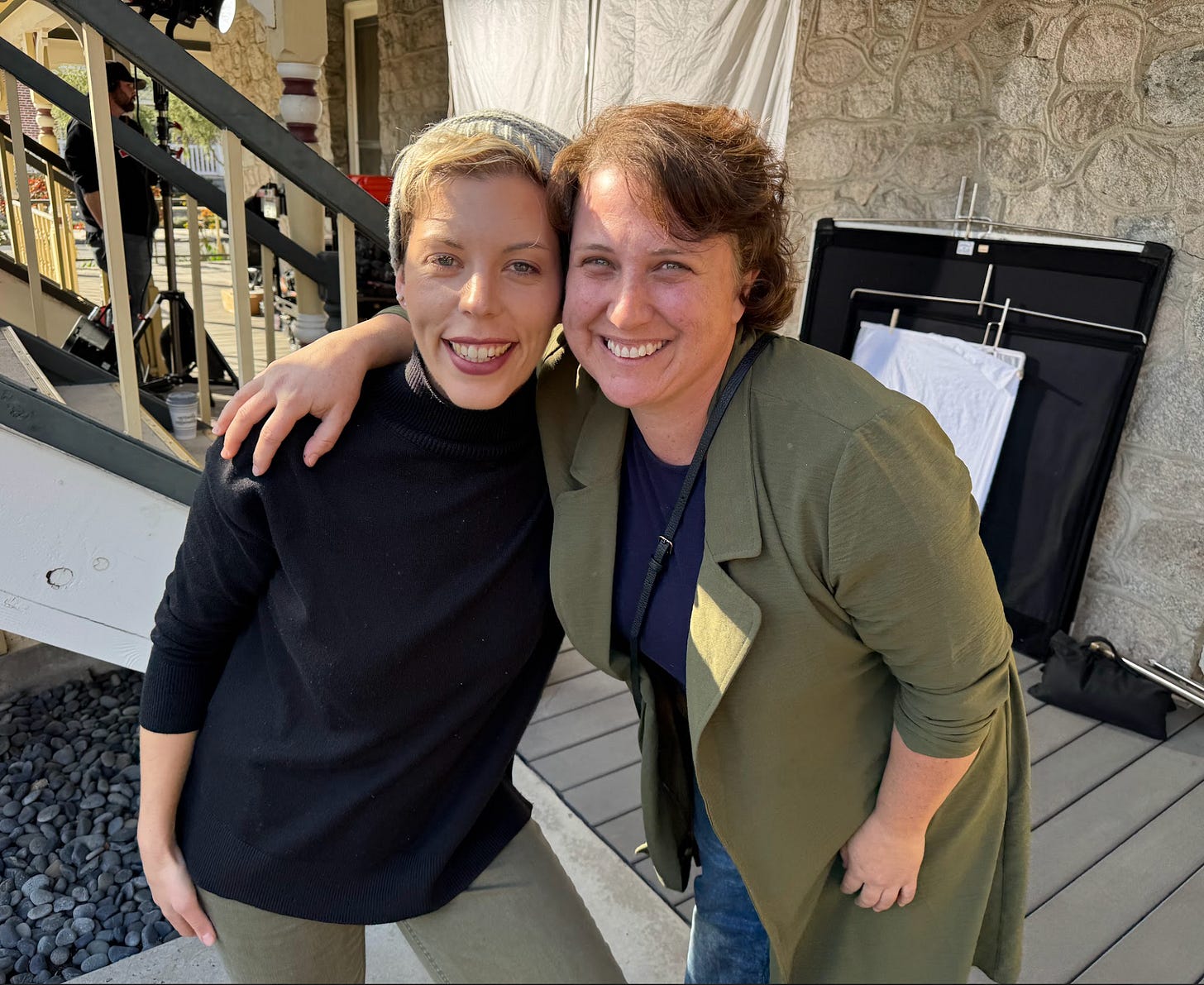
Though they are not on set from start to finish, a producer’s hours are not limited to the 12-hour workday. I worked with the production team for weeks before we ever got the first shot off, and was sending emails well into the night during production itself. All those Hollywood depictions of a producer walking around with her head in her phone, three walkies strapped to the belt, giving quick solutions before moving onto the next issue, and then seemingly chewing the fat with the actors in the makeup trailer and doing nothing… I get it now.

One day, the first AC said to me, “My days are pretty much the same. Producers always seem to have a new challenge.” He’s right; it’s a new box of worms every day. I must admit, however, I wouldn’t have it any other way. Glutton for punishment? Maybe. But that’s what keeps it interesting.
Adventure Awaits,
~S. C. Durbois
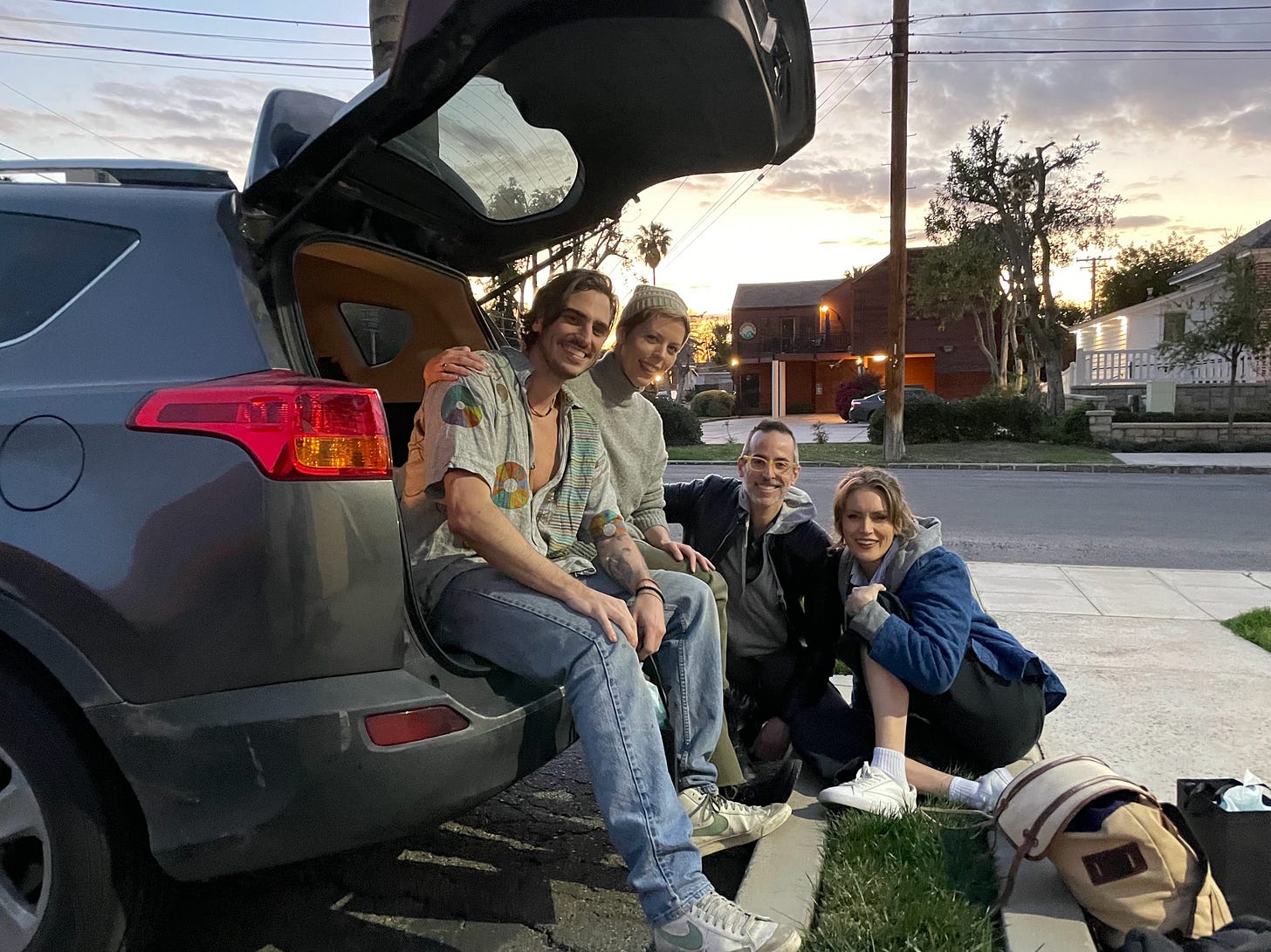
S. C. Durbois Newsletter
1st Saturday every month: a new original short story.
3rd Saturday every month: a writerly check-in with updates.
4th Saturday every month: a new original poem. Subscriber access only.






